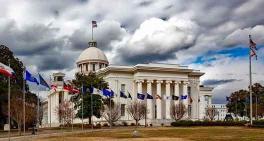Hawaii Supreme Court sides with lesbian couple in B&B case
Featured Legal News
A Hawaii appeals court ruling that a bed and breakfast discriminated by denying a room to two women because they're gay will stand after the state's high court declined to take up the case.
Aloha Bed & Breakfast owner Phyllis Young had argued she should be allowed to turn away gay couples because of her religious beliefs.
But the Hawaii Supreme Court on Tuesday unanimously rejected Young's appeal of a lower court ruling that ordered her to stop discriminating against same-sex couples.
Young is considering her options for appeal, said Jim Campbell, senior counsel for Alliance Defending Freedom, a conservative Christian law firm that is representing her. He said Young might not be able to pay her mortgage and could lose her home if she's not able to rent rooms.
"Everyone should be free to live and work according to their religious convictions - especially when determining the living arrangements in their own home," Campbell said in an emailed statement.
Peter Renn, who represents the couple, said the Hawaii high court's order indicates the law hasn't changed even after the U.S. Supreme Court last month, in a limited decision, sided with a Colorado baker who refused to make a wedding cake for a same-sex couple. He said "there still is no license to discriminate."
"The government continues to have the power to protect people from the harms of discrimination, including when it's motivated by religion," said Renn, who is a senior attorney with Lambda Legal, an organization that defends LGBTQ rights.
Diane Cervelli and Taeko Bufford of Long Beach, California, tried to book a room at Aloha Bed & Breakfast in 2007 because they were visiting a friend nearby. When they specified they would need just one bed, Young told them she was uncomfortable reserving a room for lesbians and canceled the reservation.
Related listings
-
Demonstrators force Fox crew from Supreme Court broadcast
Featured Legal News 07/10/2018Fox News' Shannon Bream said the network had to move a planned live broadcast indoors after she and her crew felt threatened by demonstrators outside the U.S. Supreme Court on Monday following President Donald Trump's nomination of Brett Kavanaugh.Pe...
-
Kentucky high court: Death penalty IQ law unconstitutional
Featured Legal News 06/16/2018The Kentucky Supreme Court has ruled that the state's practice for determining if someone is intellectually disabled and not eligible to receive the death penalty is "unconstitutional."News outlets report that the court on Thursday deemed Kentucky's ...
-
Kansas court avoids ruling on execution for student's death
Featured Legal News 06/13/2018The Kansas Supreme Court has postponed a decision on whether the state can execute a man convicted of kidnapping, raping and strangling a 19-year-old college student.The high court on Friday upheld the capital murder conviction of Justin Eugene Thurb...

Processing Change for Certain Form I-730 Petitions
USCIS changed the processing location for certain Form I-730, Refugee/Asylee Relative Petition, filings. Previously the Service Center Operations Directorate processed these filings. Now, the International Adjudications Support Branch (IASB) in the Refugee, Asylum, and International Operations Directorate will process the petitions filed by individuals who were admitted to the United States as refugees. Petitioners and/or accredited representatives who file refugee-based Form I-730 petitions will receive further instructions when IASB receives their filings. Form I-730 petitions filed by persons granted asylum will not be affected by this change. The mailing instructions for Form I-730 remain the same. Petitioners should continue to follow the Where to File directions on the Form I-730 page. This policy update is consistent with the Department of Labor’s (DOL’s) Standard Occupational Classification system. DOL defines economists as people who conduct research, prepare reports, or formulate plans to address economic problems related to the production and distribution of goods and services or monetary and fiscal policy. Economists may collect and process economic and statistical data using sampling techniques and econometric methods.




